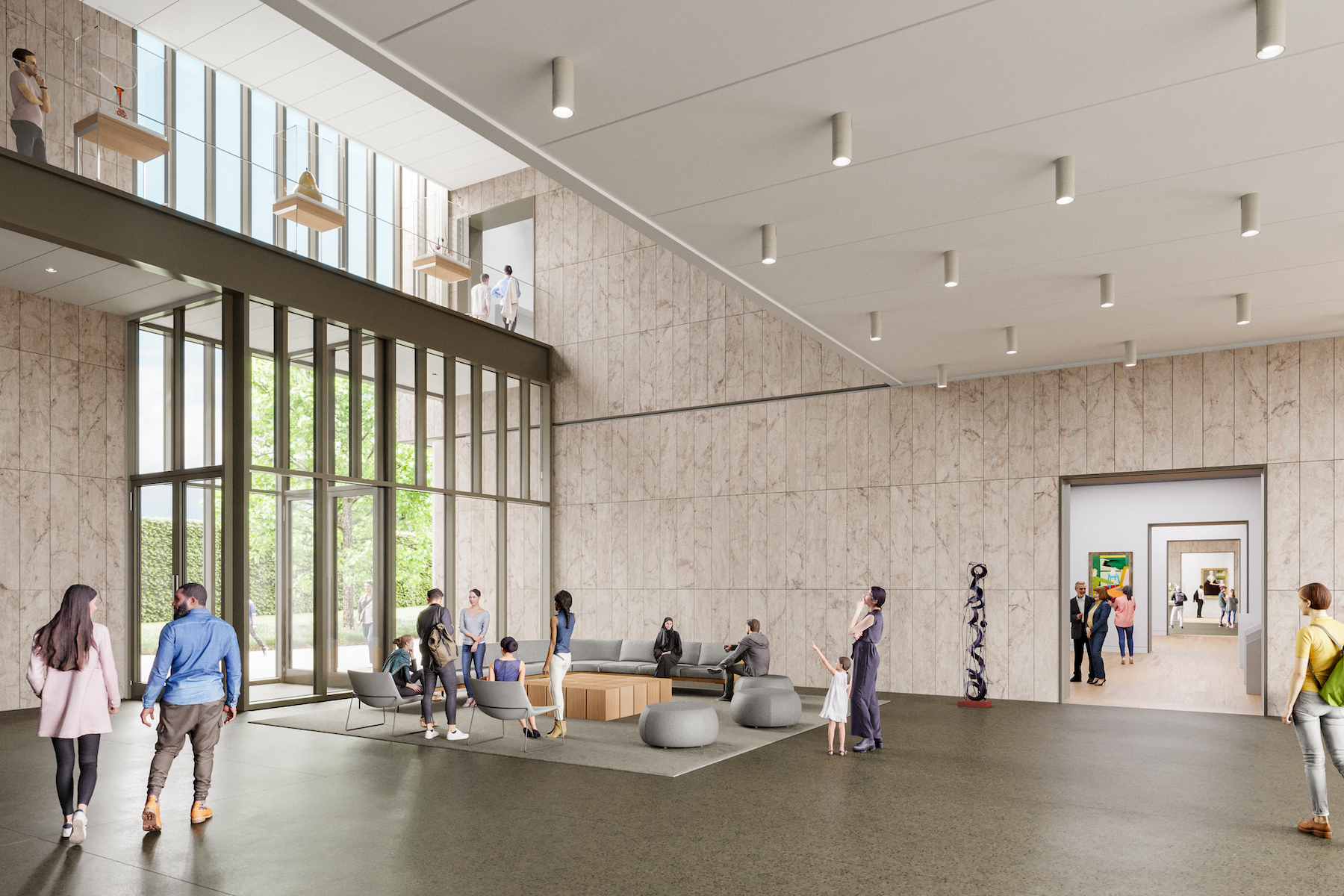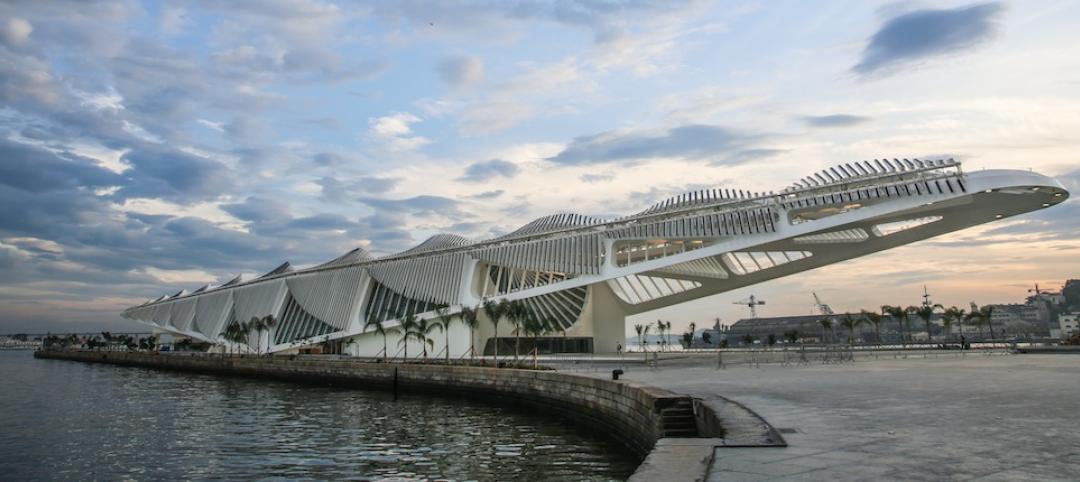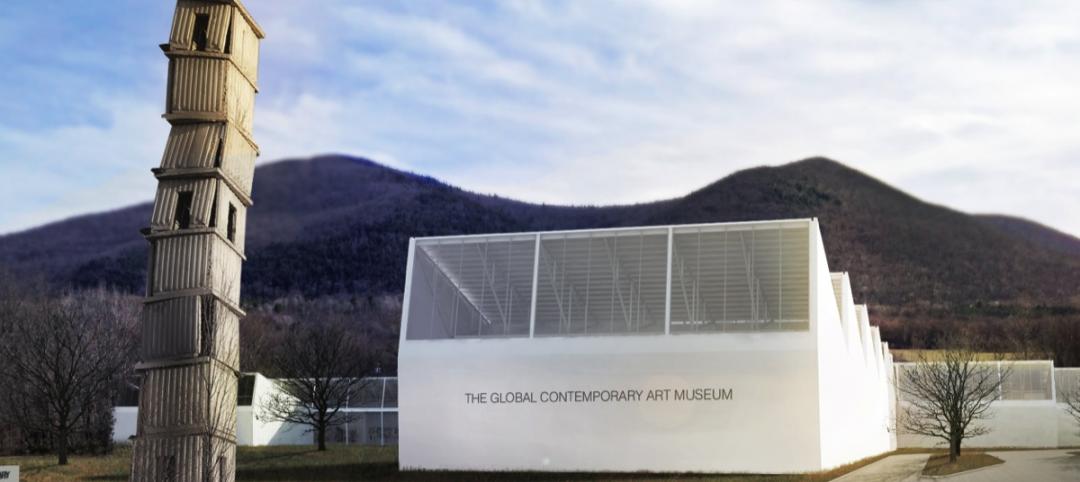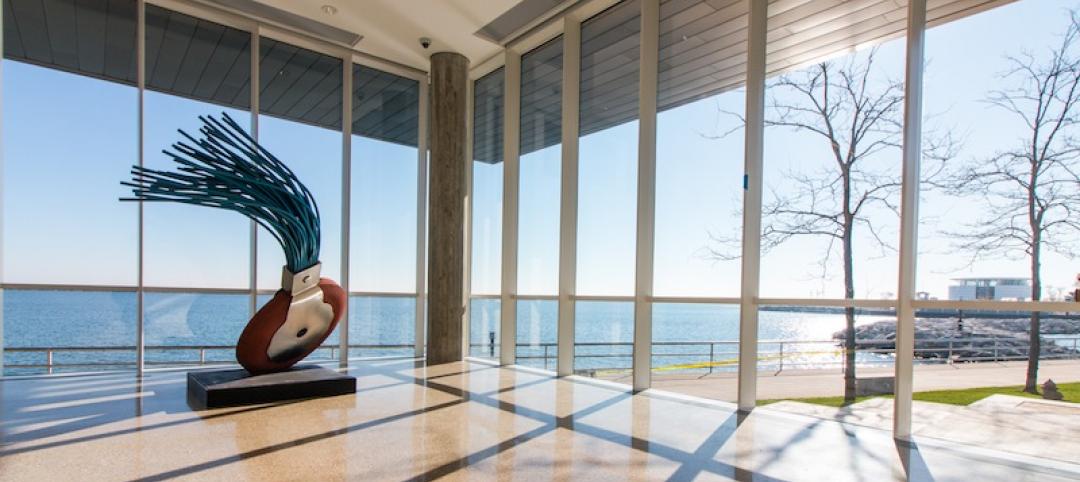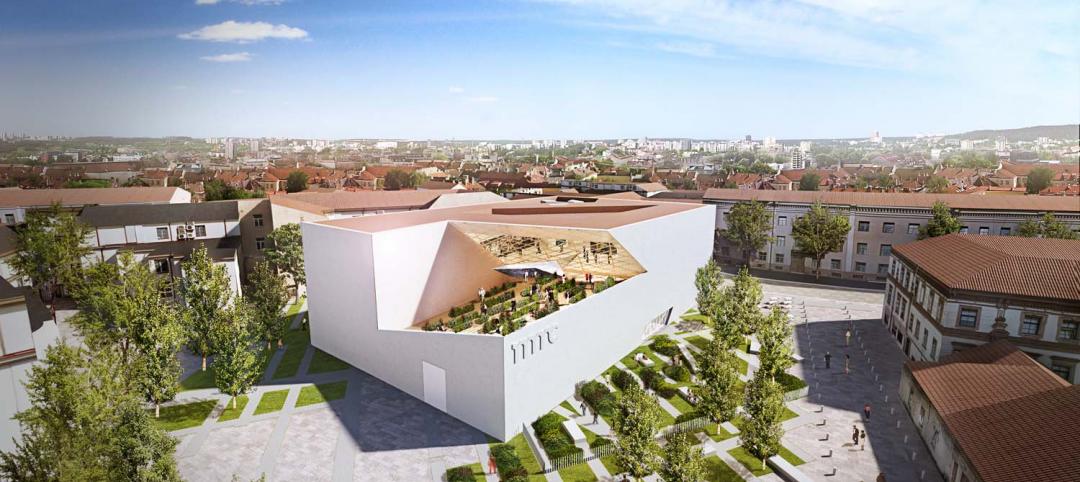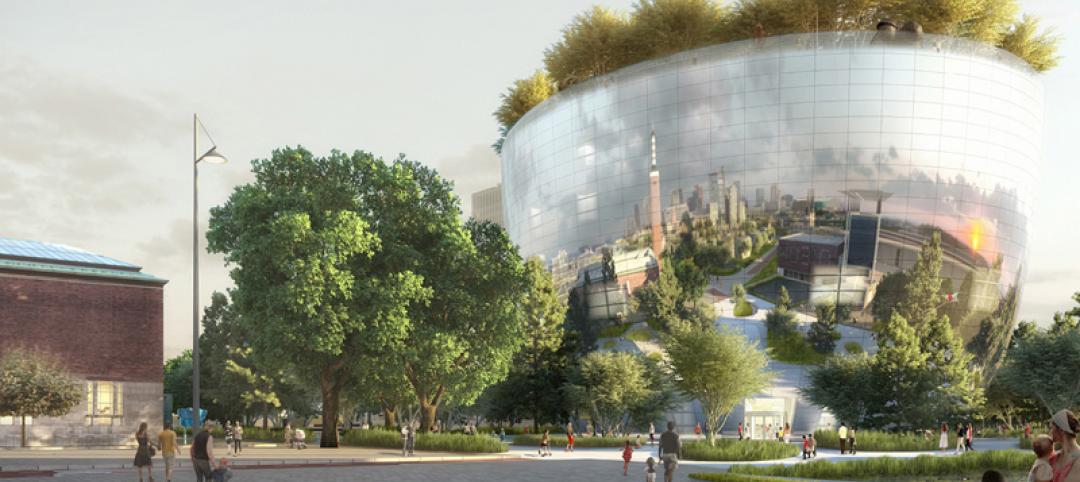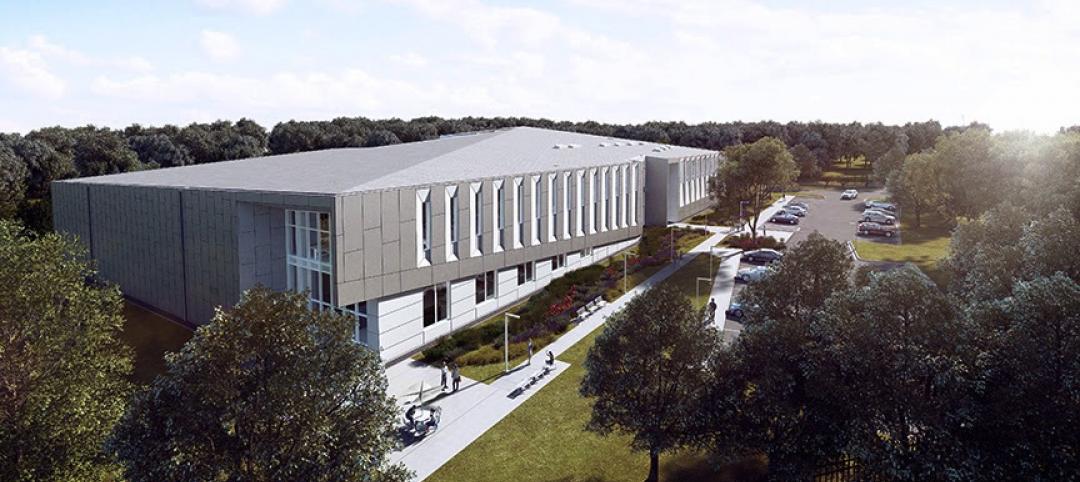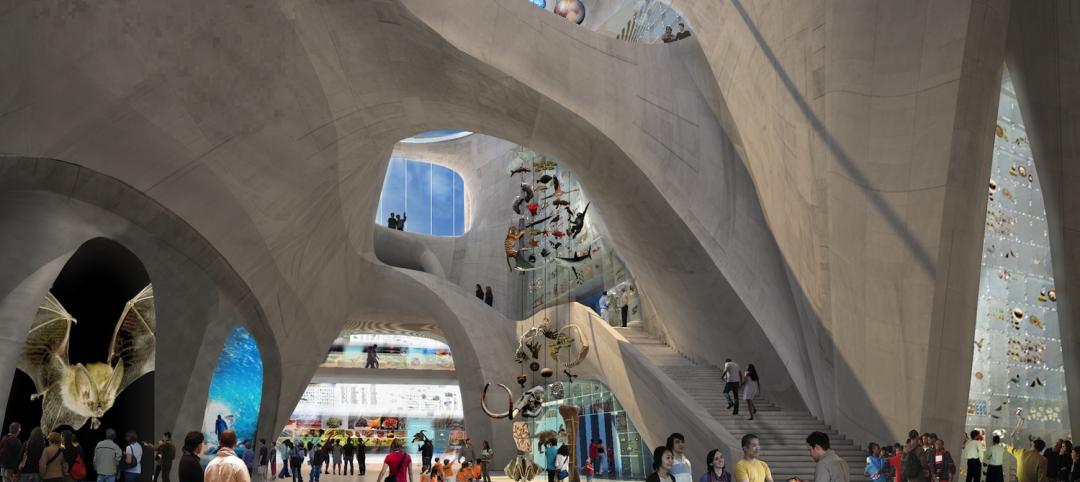On June 1, Palmer Museum of Art at Pennsylvania State University will open a 73,000-sf building with five acres of landscape within the University Park campus’ 370-acre Arboretum and adjacent to the H.O. Smith Botanic Gardens.
The project, designed by the architect Allied Works and landscape architect Reed Hilderbrand, is one of the latest expressions of the museum design trend that blurs the lines separating indoor and outdoor spaces.
Also see: Teddy Roosevelt library aims to be one with nature.
For more than a decade, museum designers have been forging the connection between exhibit space and natural surroundings. The Milwaukee Public Museum recently broke ground on the largest cultural project in Wisconsin’s history, the five-story 200,000-sf Future Museum, codesigned by Ennead Architects and Kahler Slater, with construction by Mortenson and ALLCON scheduled to begin next month. The building’s design harkens to the region’s diverse landscapes formed by movements of water over time. The Future Museum, situated on 2.4 acres in Milwaukee’s Haymarket neighborhood, will include two gardens designed by GGN, located near the entrance and on a rooftop terrace, providing an opportunity to bring native plants into the city’s urban environment.
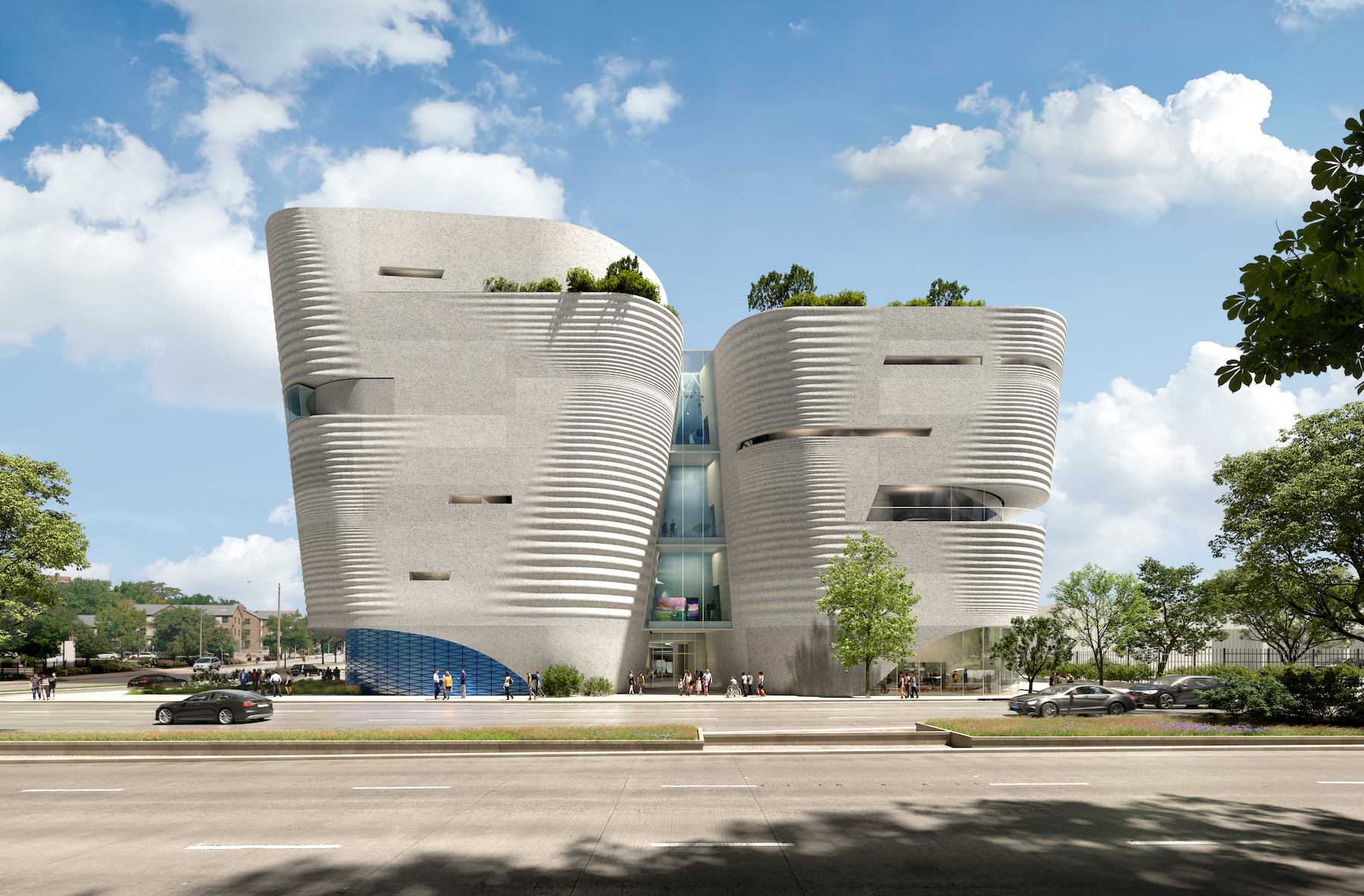
Williams College, in Williamstown, Mass., in March unveiled renderings for its first purpose-built art museum, which is scheduled to open in 2027. This three-story, 76,800-sf museum, designed by SO-IL, will consist of four program areas. A courtyard garden stands at the heart of this mass timber building. And views of the Berkshires’ landscape open from the central lobby toward the main entrances. Seating areas between the museum’s galleries offer view of the landscape, as does a lounge that unifies research space and classrooms. The landscape around the building will be reforested and renewed, with flowering meadows and gardens featuring native plants.
The Building Team for the Williams College Art Museum includes PDR (executive architect), Reed Hilderbrand (landscape architect), Fast + Epp (SE), Buro Happold (MEP), Fuss & O’Neil (CE), Thornton Tomasetti (sustainability consultant), Consigli (CM), Skanska (owner’s project manager), FMS (lighting designer), and SGH (envelope consultant).
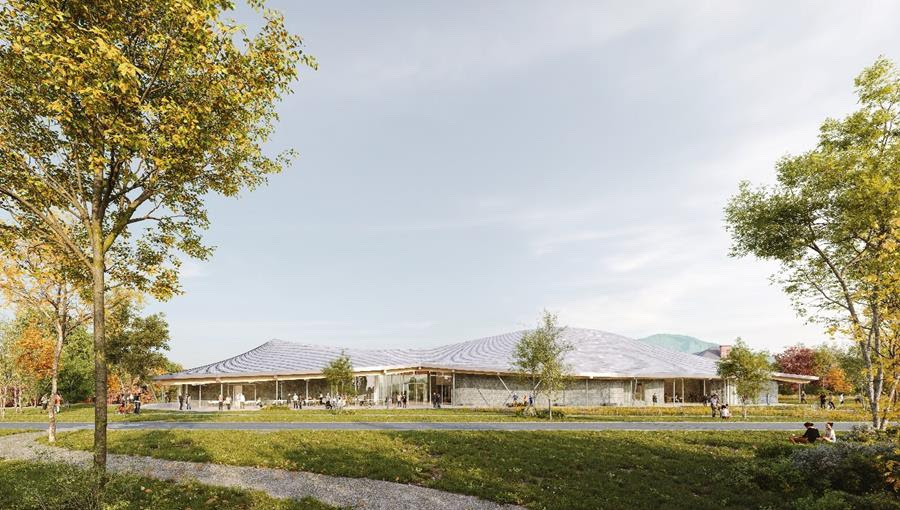
Credit: Jeudi.Wang, courtesy SO–IL and the Williams College Museum of Art.
Like strolling through a garden
The design of Penn State’s new $85 million Palmer Museum of Art doubles the existing building’s footprint and includes 20 galleries, new educational and event spaces, a sculpture path, and outdoor terraces. Grasslands, gardens, and woodlands of the Arboretum inspired the museum’s design, too. Interlocking pavilions define six courtyards and create space for the terraces and gardens. An overhead bridge joins the museum’s two wings, and creates a gateway to the botanic gardens and nearby Pollinator and Bird Garden.
“As a lifelong gardener, the prospect of merging my two passions, art and landscape, was very exciting,” said Allied Works’ Principal Brad Cloepfil, in a prepared statement. “The Palmer Museum of Art’s new location invites you on a walkthrough of the gardens and galleries as the building moves over the site.”
Erin M. Coe, Palmer Museum of Art director, added that a visit to the museum “provides a remarkable opportunity to meander through spaces filled with works of art as though one were strolling through the landscape.”
Related Stories
Architects | Jan 15, 2016
Best in Architecture: 18 projects named AIA Institute Honor Award winners
Morphosis' Perot Museum and Studio Gang's WMS Boathouse are among the projects to win AIA's highest honor for architecture.
| Jan 14, 2016
How to succeed with EIFS: exterior insulation and finish systems
This AIA CES Discovery course discusses the six elements of an EIFS wall assembly; common EIFS failures and how to prevent them; and EIFS and sustainability.
Museums | Dec 18, 2015
Santiago Calatrava-designed museum with skeletal roof opens in Rio
The Museu do Amanhã addresses the future of the planet and has an inventive, futuristic design itself.
Museums | Dec 16, 2015
Gluckman Tang-designed museums could stimulate economy in North Adams, Mass.
The goal is to create a “cultural corridor” between North Adams and Williamstown, Mass.
Museums | Dec 4, 2015
Calatrava’s Milwaukee Art Museum gets handsome addition by HGA
The lakefront addition gives visitors expansive views both inside and out.
Museums | Dec 3, 2015
SANAA’s design selected for Hungary’s new National Gallery and Ludwig Museum
After months of deliberation, the Japanese firm ultimately won the tie with Snøhetta.
Museums | Nov 23, 2015
Daniel Libeskind unveils design for new Lithuanian modern art museum
Located in the national capital of Vilnius, the Modern Art Center will be home to 4,000 works of Lithuanian art.
Museums | Nov 11, 2015
MVRDV designs a ‘disco ball’ for Rotterdam
Called the Collectiegebouw (Dutch for "collection building"), the building will make public the city’s extensive art collection, and give visitors a look at how museums work backstage, according to Fast Company.
Museums | Nov 10, 2015
U.S. Holocaust Memorial Museum breaks ground on Collections and Conservation Center
Designed by SmithGroupJJR, the David and Fela Shapell Family Collections and Conservation Center will provide long-term, secure preservation for evidence of the Holocaust.
Museums | Nov 6, 2015
Studio Gang designs sculpted science center for the American Museum of Natural History
The Richard Gilder Center for Science, Education, and Innovation will hold areas where visitors can engage with high-tech tools, such as gene mapping, 3D imaging, and big data assimilation and visualization, all to learn about the current state of scientific research.


